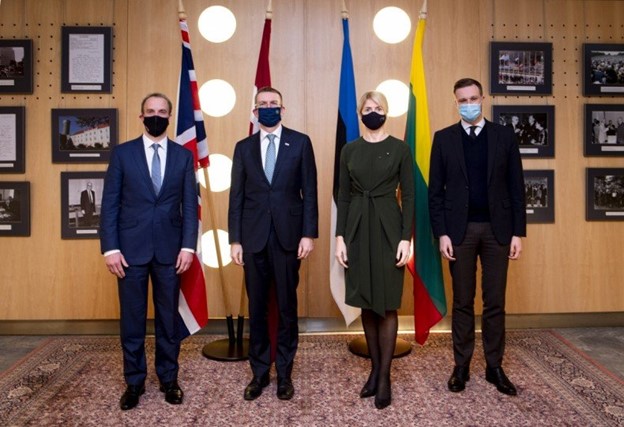
Coronavirus update in Lithuania
Lithuania registered 249 new coronavirus infections and 12 deaths from Covid-19 on March 15, according to the Lithuanian statistics office. Lithuania’s 14-day coronavirus infection rate currently stands at 223.2 per 100,000 people, and the share of positive tests over the past seven days has been 6.4%. Overall, 205,644 people have tested positive for Covid-19 in Lithuania since the pandemic began.
Currently, 191,324 people are considered as having statistically recovered from Covid-19, while 6,921 as statistically ill, compared to the declared numbers of 147,302 and 50,943, respectively. A total of 3,410 people have died from Covid-19 in Lithuania so far. The overall number of deaths directly or indirectly related to the coronavirus has reached 6,886. In total, 253,609 people have received their first coronavirus vaccine shots so far and 98,924 have been given the booster shots.
As of March 15, all shops with direct street access can reopen in Lithuania, as well as museums and galleries. More than 1,000 primary students are returning to classrooms in three schools in Vilnius. Once collective testing of students and teachers is ensured, in-class teaching will also resume in around 60 education institutions throughout the country. Under the current lockdown rules, shops are required to ensure a space of at least 20 square metres per customer. Museums, galleries and other exhibition venues that wish to reopen must sell tickets online and ensure a space of at least 30 square metres per visitor. No more than two people coming together will be allowed in, unless they are members of the same household. The ban on travelling between municipalities expires on March 15. Last month, hairdressers, beauty salons and small shops were allowed to reopen with certain restrictions.
Foreign Ministers Meet in Tallinn
On March 10, Minister of Foreign Affairs of Lithuania Gabrielius Landsbergis met with the Ministers of Foreign Affairs of the three Baltic states and the United Kingdom. The first ever meeting in this format discussed relations with Russia, China and the Balkan countries, the situation in Belarus and Ukraine, key items on NATO’s agenda and transatlantic relations, the Eastern Neighbourhood Policy, the fight against disinformation and the COVID-19 pandemic, climate change policies, cyber security, and ways to ensure freedom of the press.
As regards China, Landsbergis stressed that one of the priorities of the new Government of Lithuania was the review of relations with China. He noted that Chinese foreign policy and, especially its economic policy, are becoming more aggressive and divisive. According to Landsbergis, a transatlantic approach toward China should be shaped accordingly.
“We must work together to find ways to help civil society in Belarus in its fight for freedom and democracy, as well as victims of the regime’s violent crackdown against pro-democracy protesters,” said Landsbergis, who presented Lithuania’s position on the situation in Belarus. Lithuania’s Foreign Minister pointed out the need to continue exerting united pressure on the Belarusian regime, including sanctions. Belarus should hold free and democratic elections in the near future, release all political prisoners and bring to justice those responsible for the ongoing violent repression.
“Our common interest is to ensure that our eastern neighbours, who have chosen the path of Euro-Atlantic integration, do not deviate from it. We must help them implement important democratisation and economic reforms. The United Kingdom has always been like-minded and shared the same view on the topic. Therefore, it is very important that the country continues to engage actively in the region,” said the head of Lithuania’s diplomacy. The Foreign Minister shared his impressions with his counterparts about his recent visit to Ukraine and informed them about Lithuania’s plans to hold the Ukraine Reform Conference in 2021 if the pandemic situation allowed.
“Close cooperation between the EU and the United Kingdom in relations with Russia is no less important. The attempt to poison Alexei Navalny and his imprisonment, the continued spread of disinformation and state-sponsored cyber attacks, further annexation of Crimea and destructive actions in eastern Ukraine prove that Russia does not wish to change. It remains the principal threat to the region. On the other hand, we must continue the dialogue with Russia’s civil society and opposition, because a democratic Russia is a goal shared by all of us,” said the Foreign Minister.
The Foreign Ministers issued a joint statement and agreed to continue holding discussions on the most pressing foreign policy issues on a regular basis.



























